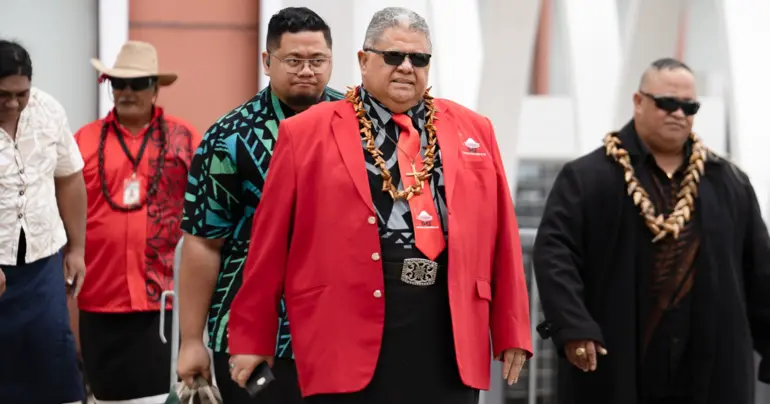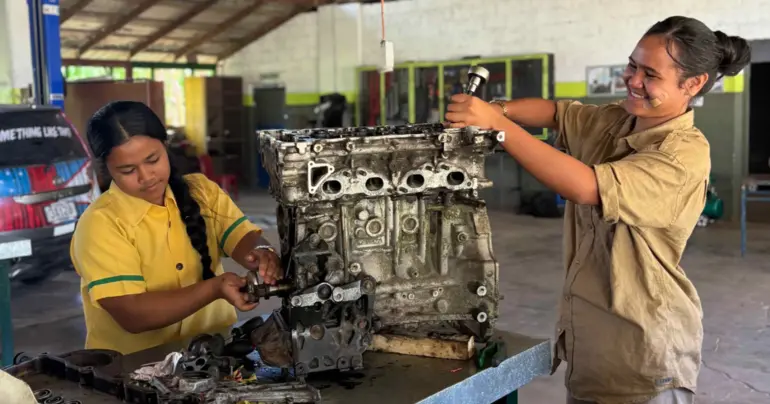Urgent action needed for sea turtle conservation in Fiji
New preliminary research findings highlight persistent and alarming rate of ongoing sea turtle harvesting, which directly contradicts the well-defined regulations prohibiting this practice. A troubling trend that warrants immediate attention.
The findings identified major harvesting hotspots in the provinces of Lomaiviti, Macuata, Kadavu, and Bua. The turtle, also known as vonu or ika bula, holds significance within Fiji's customary rituals and events involving chiefs, such as for their installation ceremonies, weddings and funerals.
The preliminary survey results point to the need to re-assess current legislation, strengthen collaboration and partnerships amongst management stakeholders and communities, strengthen enforcement capacity and improve awareness.
The study, titled Pacific-European Union Marine Partnership (PEUMP) Programme By-catch and Integrated Ecosystem Management Initiative: Survey of Marine Turtle Use by Communities in Fiji, investigated the complex relationship between sea turtles and Fijian communities to help address information gaps on their harvest, trade and use in Fiji that would be of interest to decision makers, natural resource managers, conservationists, local community members, and conservation-focused non-government organisations, both at national and regional level.
The comprehensive study was conducted by the World Wide Fund for Nature (WWF), in collaboration with the Secretariat of the Pacific Regional Environment Programme (SPREP), through the SPREP implemented By-catch and Integrated Ecosystem Management (BIEM) Initiative of the PEUMP programme funded by the European Union (EU) and the Government of Sweden and it provides much needed insights into the patterns of use and trade of sea turtles in Fiji.
The research was conducted by WWF-Pacific in collaboration with SPREP, WWF-Australia, WWF-Pacific and the WWF-Coral Triangle Programme and provides much needed insights into the patterns of use and trade of sea turtles in Fiji.
Five of seven species of endangered sea turtles including green turtle, the critically endangered hawksbill turtle, loggerhead turtle, olive ridley turtle and leatherback turtle are found nesting, migrating or foraging across the coastal and oceanic waters of the Fijian archipelago. Green sea turtles were found to be more frequently harvested than hawksbills.
Sea turtles are considered a valuable asset categorised under i yau, which encompasses valuable possessions like the tabua (sperm whale tooth), masi (cloth woven from mulberry tree bark), and ibe (reed-woven mats). This underscores the esteemed status of turtles as not only sacred articles but also as exceptional meat designated for a select few individuals within traditional communities. However, the pursuit of turtle meat has become more prevalent, even for occasions that deviate from traditional practices.
According to the Programme Manager of WWF-Pacific Sustainable Fisheries and Seafood Programme, Duncan Williams, it is clear that sea turtles are still being harvested.
“While the results from the surveys are still preliminary, we can already determine that sea turtles are targeted on purpose (and at night) than caught incidentally and are targeted consistently year-round,” said Williams.
“Approximately 2,420 turtles were calculated to have been harvested within the past 12 months, as reported by 293 respondents (24.7%) who were surveyed across 136 villages spanning the 10 provinces.”
He added, “Noting there are hundreds of villages in Fiji, this estimated figure should raise significant concern that harvesting of sea turtles is likely far greater and likely having an impact on Fiji turtle populations. Given the limited nesting population of hawksbills within Fiji, the extent of harvesting impacting this critically endangered species is profoundly concerning.”
The research project used WWF Turtle Use Project community-based field surveys to assess the drivers and motivations of sea turtle use and trade, including harvest levels, and fishing methods used by local fishers and community members in Fiji.
The research was conducted in 136 villages located in 10 coastal provinces across Fiji with surveys being carried out between March 2021 and early December 2021 and late March of 2022 by WWF-Pacific with approximately 1,186 interviews conducted.
These findings have been presented to partners (communities, management authorities, other NGOs, scientists, academics, resource managers, and conservation practitioners) to try to address some of the issues emerging from the study.
“Marine turtles are known as ‘keystone species’ and play a vital role in maintaining the health of our reefs and oceans,” said SPREP’s Director of Island Ecosystems, Mr Stuart Chape.
“They are also a migratory species and therefore belong to all Pacific countries and territories. That means that it is the responsibility of governments and communities at national levels to ensure that mechanisms are in place, including government policies and enforcement and traditional controls, to protect and sustainably manage these iconic species. We are pleased to have supported this survey and report findings to ensure that partners, communities and the Fiji government are informed on the true status of marine turtles. All concerned should accept these findings as a wake-up call and ensure that measures are in place to strengthen protection for these migratory species.”
SPREP is leading Key Result Area 5 of the PEUMP programme, the BIEM Initiative, to support the governments of Fiji, Papua New Guinea, Solomon Islands, Tonga and Vanuatu in the sustainable management of coastal and marine biodiversity.











